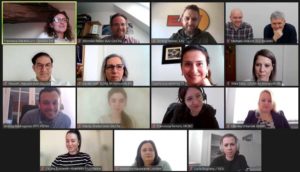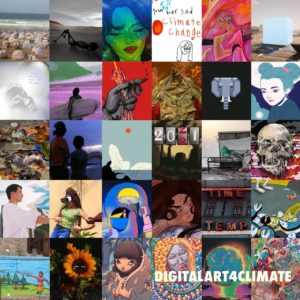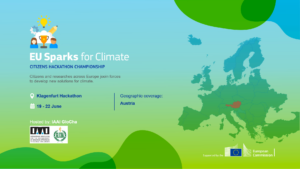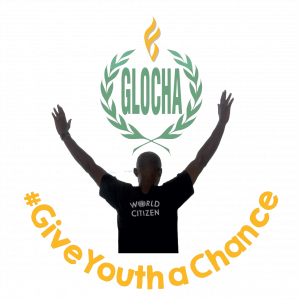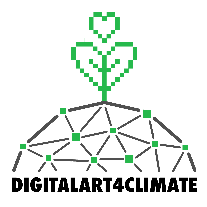IAAI co-organizer of breakout session on climate change at UN ECOSOC Youth Forum 2016
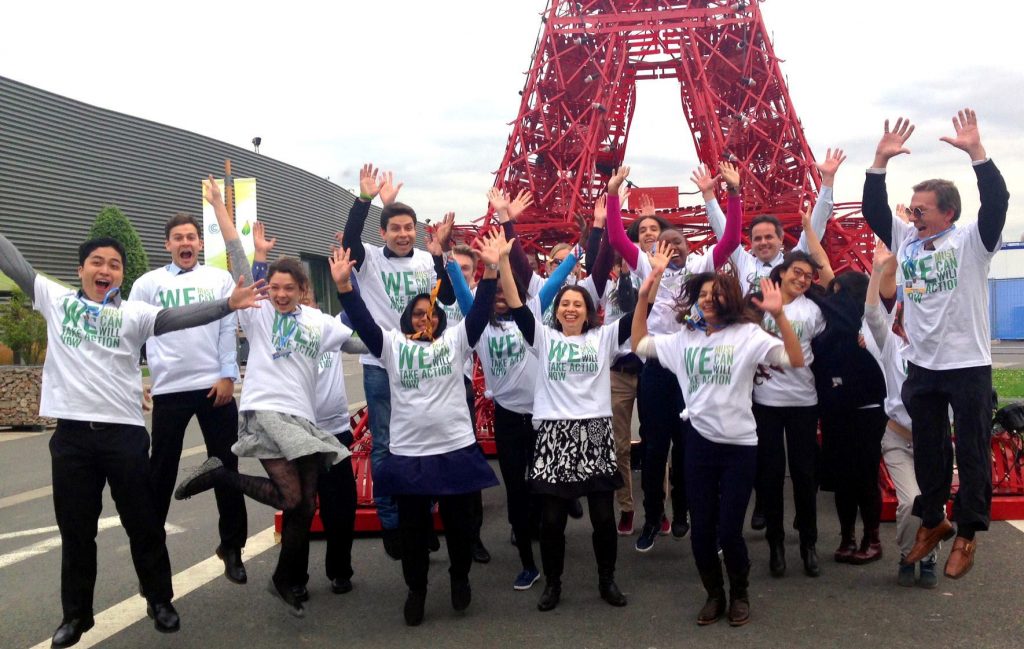
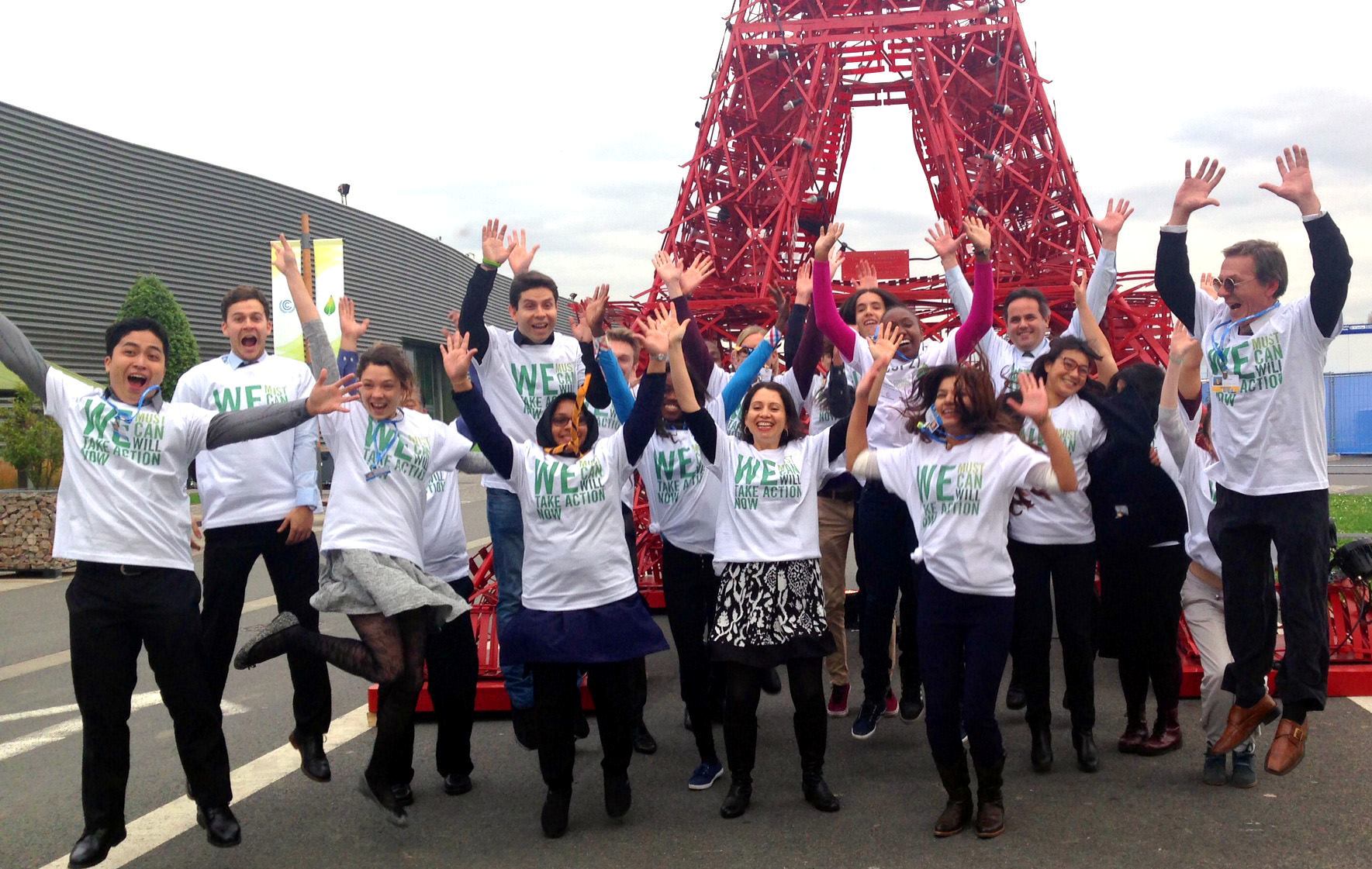
IAAI is co-organizing in the framework of United Nations Joint Framework Initiative on Children, Youth and Climate Change together with UNFCCC Action for Climate Empowerment team, YOUNGO and UNDP / GEF Small Grants Programm a breakout session on climate change at UN ECOSOC Youth Forum 2016 1st of February 2016 3-5 PM at UN Headquarters in New York.
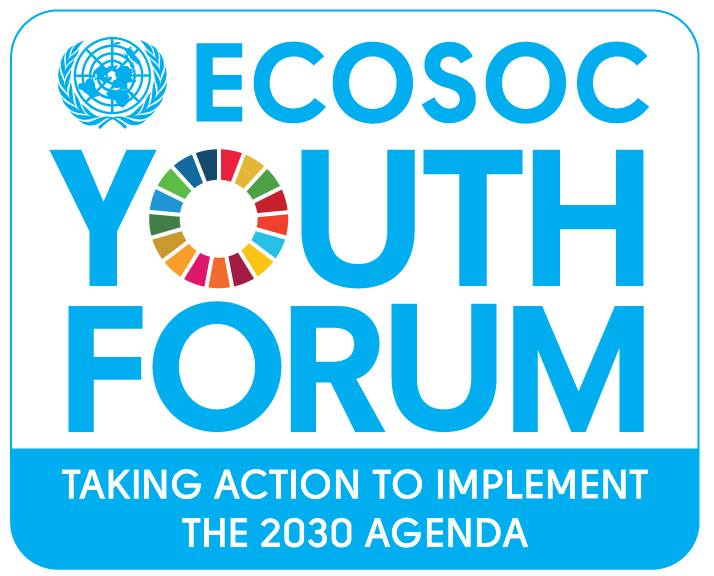
The session will be also broadcasted live on youtube (link: https://youtu.be/V2-n6lB7xpg)
(Please note that a UN Grounds Pass or registration for ECOSOC Youth Forum is needed to access the UN HQ NY building)
Objectives:
The session aims to discuss how young people can contribute in the implementation of the Paris Agreement on Climate Change and play an active role in the 2030 Agenda for Sustainable Development. Interactive panel discussions will review and brainstorm ideas on how youth can best share ideas and communicate on the Agenda, mobilize resources, and bring on board the innovative use of social media and communication tools. Recommendations from the session will be presented during Young and Future Generations Day at COP22/CMP12 in Marrakesh.
Draft agenda
- Welcoming remarks and introduction by Co -moderators, Angelica Shamerina, UNDP – GEF Small Grants Programme, Timothy Damon, YOUNGO and Miroslav Polzer IAAI GloCha
- Video message from UNFCCC
- presentation on 12th Conference of Youth (COY12) preparations
- Panel and discussion (example questions shown below)
- Highlighting 2016 key events in the field of youth and climate change
- SBI44
- COY12
- COP22
- Question and answer session
- Recommendations and individual and institutional commitments
Issues at stake:
- Increasing youth public awareness, public participation, and public access to information on climate change and the SDGs
- Providing youth focused SDG means of implementation on global, national and local level with particular focus on education, technology access and blended financing
- Increasing the involvement of young people in negotiations and UNFCCC processes, as well as the organization of youth-led climate change events
Questions for the participants:
- What can young people contribute to the successful implementation of Sustainable Development Goal 13 – Climate Action?
- What tools and/or resources are needed for youth to implement climate action?
- How can we set up a youth focused resource mobilization and multistakeholder engagement support mechanism for climate action and SDGs implementation? (Link to IAAI GloCha input to the discussion)
- How can we engage a new generation of (young) global philanthropy leaders in climate action?
- How can we use the power of art, music and (social) media to engage young people?
- What recommendations do you have for youth to move forward in 2016 and beyond in the context of UNFCCC processes and events to create a sustainable and climate-resilient future?
—
Info about2016 ECOSOC Youth Forum:
The 2016 ECOSOC Youth Forum will:
- Provide a platform for young people to engage in a dialogue with Member States and other actors on concrete commitments and actions to realize the SDGs at the national, regional and global levels. Young people will identify the roles youth and youth-led organizations will play at the policy and legislative levels to ensure implementation of the 17 Sustainable Development Goals. Examples and projects where youth are already making a difference will be showcased.
- Identify possible avenues for young people to contribute to the intergovernmental review of the implementation of the 2030 Agenda, including identifying ways that youth can partner with the UN system, civil society and Governments to ensure implementation. The Forum will also identify possible youth technology tools to monitor and track implementation.
The 2016 ECOSOC Youth Forum will feature opening and closing plenary sessions with representatives from youth organizations, high-level and other keynote speakers. The other sessions will be highly interactive, including through breakout sessions. During these interactive sessions, the moderators will have a primary role to actively engage the audience with pertinent questions related to the various themes to be addressed.
The breakout sessions will provide a platform for youth to express themselves among other groups of young people on a more hands-on approach to implementation.
Please find below and attached information from the draft concept note of the breakout session on climate change:

United Nations Economic and Social Council (ECOSOC) Youth Forum 2016
Breakout Session on Climate Change (UNFCCC/YOUNGO)
United Nations Headquarters, New York
1 February 2016. 15:00 – 17:00
Draft Concept Note
1. Background and Context
With the 2015 Paris UN Climate Change Conference still fresh in people’s minds, sustainable development and climate change have been brought to the forefront of socio-economic discussions around the world. The Paris Agreement saw 195 nations come together, in a historic moment, to agree to keep a global temperature rise this century well below 2 degrees Celsius and to drive efforts to limit the temperature increase even further to 1.5 degrees Celsius above pre-industrial levels. The Agreement captures essential elements to drive action forward, including the following identified areas;
- Mitigation – reducing emissions fast enough to achieve the temperature goal
- A transparency system and global stock-take – accounting for climate action
- Adaptation – strengthening ability of countries to deal with climate impacts
- Loss and damage – strengthening ability to recover from climate impacts
- Support – including finance, technology and capacity building for nations to build clean, resilient futures
The Agreement included matters related to Article 6 of the Convention, stating, “Parties shall cooperate in taking measures, as appropriate, to enhance climate change education, training, public awareness, public participation and public access to information, recognizing the importance of these steps with respect to enhancing actions under this Agreement.” Sustainable development goal 13 calls to, “Take urgent action to combat climate change and its impacts,” with targets to “Improve education, awareness-raising and human and institutional capacity on climate change mitigation, adaptation, impact reduction and early warning.” Public authorities as well as private sector and civil society are becoming increasingly aware of the need for multistakeholder climate action within all sectors at global, regional, national and local levels. Developing countries will continue to need support to allow them to deal with global collective challenges, including adaptation to climate change. The session will highlight the critical needs and priorities of young women and men, who fall into the most vulnerable and susceptible group to climate change, and how we can provide opportunities for meaningful and rewarding engagement of young people in local and global climate action.
Partners
Since September 2008, the United Nations Framework Convention on Climate Change (UNFCCC)
secretariat has been working together with United Nations entities and youth organizations to empower children and young people to take action on climate change through the United Nations Joint Framework Initiative on Children, Youth and Climate Change. The work of the Initiative is closely linked to the implementation of Article 6 of the UNFCCC and in particular the implementation of the Doha work programme on Article 6 of the Convention. The partners that will facilitate the ECOSOC Youth Forum breakout session on climate change include:
- United Nations Development Programme (UNDP) – GEF Small Grants Programme
- International Association for the Advancement of Innovative Approaches to Global Challenges (IAAI GloCha)
- YOUNGO – UNFCCC Constituency of Youth Non-governmental Organizations
2. Objectives
The session aims to discuss how young people can contribute in the implementation of the Paris Agreement on Climate Change and play an active role in the 2030 Agenda for Sustainable Development. Interactive panel discussions will review and brainstorm ideas on how youth can best share ideas and communicate on the Agenda, mobilize resources, and bring on board the innovative use of social media and communication tools. Recommendations from the session will be presented during Young and Future Generations Day at COP22/CMP12.
Draft agenda
- Welcoming remarks and introduction by Co -moderators, Angelica Shamerina, UNDP – GEF Small Grants Programme and Miroslav Polzer IAAI GloCha
- Video message from UNFCCC
- Video message from COY12 organizers
- Panel and discussion (example questions shown below)
- Highlighting 2016 key events in the field of youth and climate change
- SBI44
- COY12
- COP22
- Question and answer session
- Recommendations and individual and institutional commitments
3. Issues at stake
- Increasing youth public awareness, public participation, and public access to information on climate change and the SDGs
- Providing youth focused SDG means of implementation on global, national and local level with particular focus on education, technology access and blended financing
- Increasing the involvement of young people in negotiations and UNFCCC processes, as well as the organization of youth-led climate change events
4. Questions for the participants
- What can young people contribute to the successful implementation of Sustainable Development Goal 13 – Climate Action?
- What tools and/or resources are needed for youth to implement climate action?
- How can we set up a youth focused resource mobilization and multistakeholder engagement support mechanism for climate action and SDGs implementation?
- How can we engage a new generation of (young) global philanthropy leaders in climate action?
- How can we use the power of art, music and (social) media to engage young people?
- What recommendations do you have for youth to move forward in 2016 and beyond in the context of UNFCCC processes and events to create a sustainable and climate-resilient future?
5. Suggested reading materials, videos and links
Transforming Our World – the 2030 Agenda for Sustainable Development https://sustainabledevelopment.un.org/?menu=1300
Adoption of the Paris Agreement http://unfccc.int/resource/docs/2015/cop21/eng/l09r01.pdf
Doha work programme on Article 6 of the Convention http://unfccc.int/resource/docs/2012/cop18/eng/08a02.pdf#page=17
Youth in Action on Climate Change: inspirations from around the world.http://unfccc.int/cc_inet/files/cc_inet/information_pool/application/pdf/youth_in_action_on_climate_change_en.pdf
Growing Together in a Changing Climate: The United Nations, Young People, and Climate Change http://unfccc.int/cc_inet/files/cc_inet/information_pool/application/pdf/growingtogether.pdf
Youth Participation in the UNFCCC Negotiations http://unfccc.int/files/cooperation_and_support/education_and_outreach/youth/application/pdf/youth_participation_in_the_unfccc_negotiations.pdf
Young and Future Generations Day at COP21 https://www.youtube.com/watch?v=nbKxNUVKBBI
Education Day at COP21 http://newsroom.unfccc.int/unfccc-newsroom/a-first-education-day-to-reach-everyone-at-cop21/
Fighting Climate Change with Music https://www.youtube.com/watch?v=HJ4pObZWg5A
Contact:
Ms. Adriana Valenzuela
Focal Point – Education, Training and Public Awareness, Action for Climate Empowerment (ACE), UNFCCC
Ms. Angelica Shamerina
Program Advisor (Climate Change), GEF Small Grants Programme, UNDP
Dr. Miroslav Polzer
International Association for the Advancement of Innovative Approaches to Global Challenges
